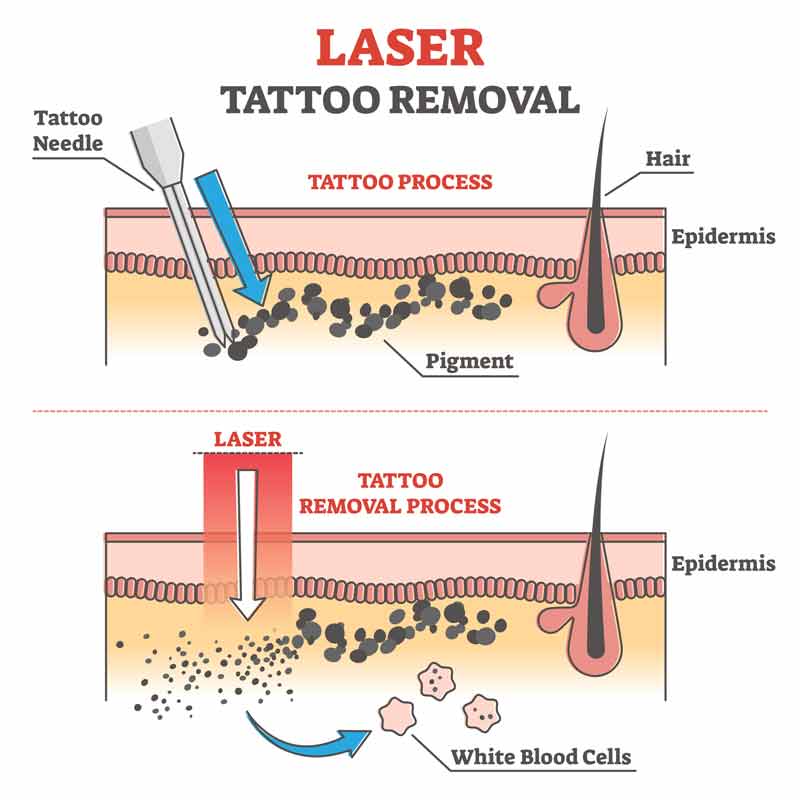

The Q-Switched laser delivers short, high-intensity pulses of energy that target the tattoo pigment without damaging the surrounding skin. The laser energy breaks the ink particles into tiny fragments, which are gradually eliminated by the body’s natural immune response over the following weeks.
While the main laser targets the ink, the Fractional HP Handpiece supports the process by stimulating skin regeneration and boosting collagen production. This promotes faster healing, reduces inflammation, and helps improve skin texture between sessions—especially beneficial for larger or older tattoos where skin may become more fragile.
Laser tattoo removal is ideal for individuals who:
Want to remove or fade an unwanted tattoo – Whether it’s for full removal or lightening before a cover-up.
Have professional or amateur tattoos – The treatment is effective on a range of tattoo types and ink densities.
Are in good general health – A healthy immune system helps the body eliminate ink particles more efficiently.
Have lighter skin tones – Laser removal tends to be more effective on lighter skin, but treatments can be tailored for darker skin types with care.
Are patient and committed to the process – Multiple sessions are usually required, spaced weeks apart, for optimal results.

It’s essential to avoid sun exposure or any other form of tanning prior to a Carbon Laser Peel treatment and use an SPF30+ sunscreen every day
Prepare your skin with specialised skin care products, recommended for at least two weeks prior to treatment.
Avoid active skincare ingredients such as retinol, AHAs, and BHAs for at least 5 days before your treatment to reduce the risk of sensitivity.
Avoid heat or excessive sweating for 48 hours.
Do not use any active skin care products for 24-48 hours post treatment.
Use SPF30+ every day between treatments.
breaks down tattoo pigment using precise energy, it’s a safe and effective option with minimal risk of scarring
Our Q-switch Laser can remove black, blue, red, and even some green and yellow inks
Most people can resume normal activities immediately after their session
Each session is adjusted to your specific tattoo and skin tone, allowing for gradual fading or complete removal over time
Whether it’s an old design, a name, or a past decision, laser tattoo removal can help restore your natural skin
Laser Tattoo Removal feels like a quick elastic snap against the skin and is usually tolerable, but numbing options are available.
The number varies depending on the tattoo's age, depth, ink type, and your skin, but most require between 6–10 sessions.
It depends on the medication—please inform your clinician, as some drugs may increase sensitivity or risk.
Most colours respond well, but darker inks like black and blue fade faster than lighter ones like yellow or green.
The area may appear red, swollen, or slightly blistered temporarily, similar to a mild sunburn.
Sessions are typically spaced 6–8 weeks apart to allow the skin time to heal and the body to clear the ink.
Laser tattoo removal is not recommended during pregnancy or breastfeeding due to limited safety data.